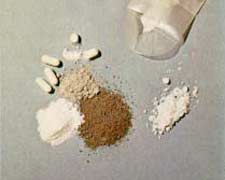The results of The Netherlands’ controversial trial scheme shows that ‘Heroin on prescription’ offers a future to the thousands of addicts who have been pushed to the edges of society.
“The trial on the medical prescription of Heroin, didn’t just come out of the blue” says Wim van den Brink, Professor of Psychiatry and Addiction at the Amsterdam Medical Centre, and head of the trial. Heroin has been a problem in The Netherlands since the early 1970s. There are currently around 25,000 Heroin addicts in the country. “The good thing,” continues Van Den Brink, “is that something like 70% of these addicts are in touch with the treatment system.” A large amount compared to most other countries. The problem is, however, that although they are in contact with the treatment system, about 7 – 8,000 of these addicts are failing to respond to treatment. “Most of these addicts have been hooked on Heroin for 16 to 20 years,” explains Van den Brink, “they’ve been in abstinence treatment, they’ve been in Methadone maintenance, nothing seems to help with these people.”


Last Option?
Because of this the Dutch government commissioned a study into whether Heroin on prescription could be a treatment option, while at the same time investigating whether higher dosages of Methadone could be more effective. For three years, researchers monitored the progress of two groups of addicts: the first offered a combination of Heroin and Methadone; the second group being given only Methadone. Twelve months after the start of these different treatments, in the group with Heroin, researchers saw that the physical health of the addicts had improved dramatically. Their psychological well-being was much better, and their social integration had improved. Also, they had more contact with people outside the criminal and Heroin scene, and some are much less involved in criminal activities. Van den Brink: “you see that these patients are still addicted, but their quality of life is much better, and some people actually start to have new jobs again.”
Not A CureHeroin
According to Van den Brink, Heroin is not a cure – but it does stabilize the addicts’ lives. But does this mean these people will be receiving prescription Heroin for the rest of their lives? Van Den Brink says it’s too early to tell. What is clear is that where treatment was stopped, within two months, the addicts were back to their “highly dysfunctional levels”. “I think we can’t exclude the possibility that we might be with these people for many years to come. But then it’s much better to be with these people in good situations, in non-criminal situations, and people are actually functioning quite well.”
Higher Doses
The investigation into the levels of Methadone given in The Netherlands showed that currently they were too low. Higher dosages proved to be more effective. But doesn’t this prove the need for prescription Heroin? “We see Heroin prescription as a last resort treatment. First you have to have good abstinence programs, then you have to have good Methadone maintenance programs, and only if people don’t respond, are you allowed to get into Heroin prescription programs.”
Next Step
The next step for Professor Van den Brink is to get the Dutch government to accept the results of the trial. He has put forward two main recommendations: “We can say now that for people who are really treatment resistant, Heroin prescription might be a good treatment option, and it should become available to the Heroin addicts in The Netherlands. The second is that we should try to go for registration of Heroin as a medicinal product.” Van Den Brink is hopeful that the government will accept his recommendations and the Heroin prescription program can continue.